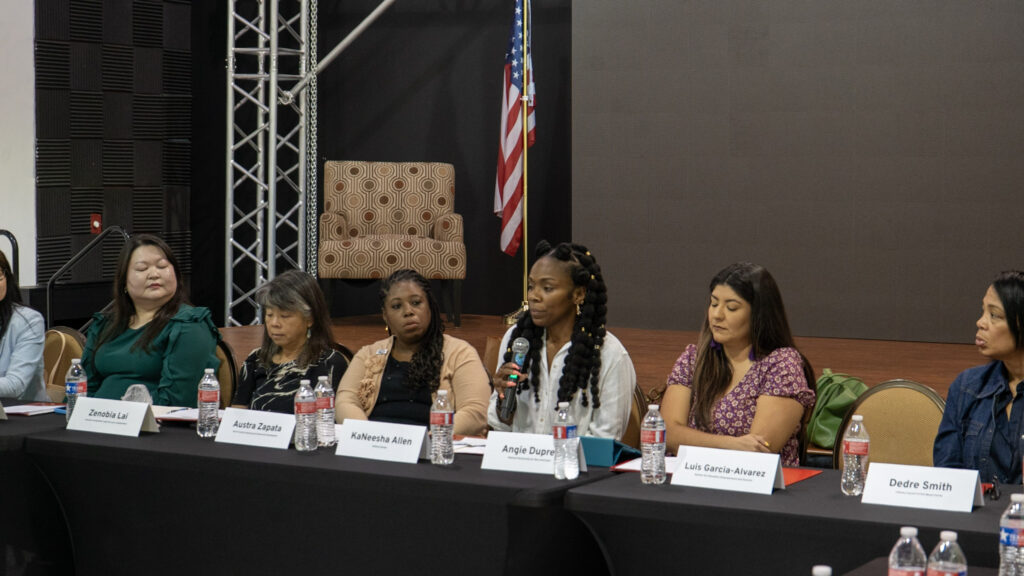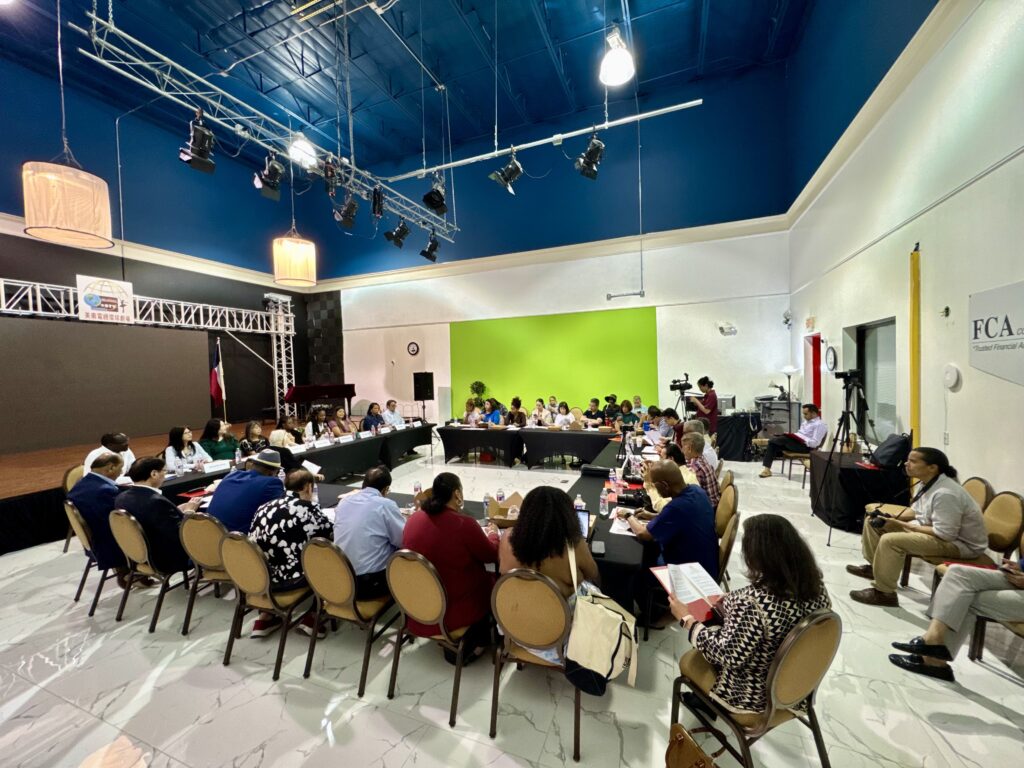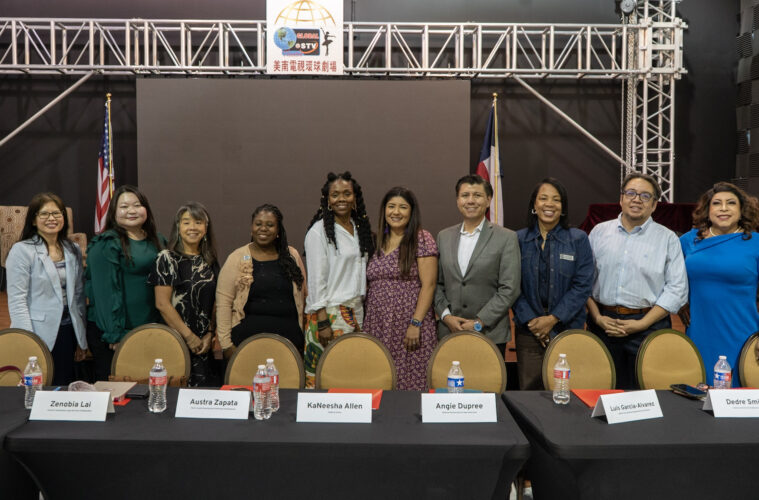In Houston, a quiet but powerful campaign is making waves—one that centers care, community, and the courage it takes to cross the final step toward citizenship.
At a May 8 briefing hosted by Houston Community Media titled “A Safe Path to Citizenship: The Time is Now,” speakers laid bare the reality: over 360,000 lawful permanent residents in the Houston region are eligible to become citizens, yet many haven’t taken that final step. And the reasons why are deeply human—fear, cost, confusion, and simply not knowing where to turn.

KaNeesha Allen, Community Collaboration Lead at Dalberg Design, opened the conversation by grounding it in the numbers:
“There were roughly about 360,000 adults that were eligible to naturalize in the Greater Houston area.”
She added,
“Eighty percent of those eligible have lived in the U.S. for about 10 years… forty percent for about 20 years.”
For many, these are women who’ve raised families, paid taxes, and weathered storms—yet remain excluded from the full protection of citizenship.

Allen said the project was designed through listening:
“We have heard specifically from community members… what have been some of their greatest challenges, their perspectives and ideas about navigating the naturalization process.”
That listening led to programs like Navigator support, Citizenship Circles, and people sharing real stories of obtaining citizenship and transformation.
One of those stories came from Austra Zapata, Naturalization Program Manager for Harris County, who became a citizen at 15 after immigrating from Honduras.
“Citizenship is the trophy at the end of a very long and complicated journey.”
She reminded the audience that fear shouldn’t stop them—because they don’t have to do it alone:
“We have built a wraparound program that truly serves the residents of Harris County at no cost to them.”
From January to March of this year, that program provided over 2,000 legal screenings and 1,400 full representations.
Alice Min, who supports Korean and Latino communities at WooriJuntos, said many of the women she serves feel anxious and underprepared—some never attended formal school.
“Some are non-literate in any language. So we ensure that our classes are culturally responsive and delivered in a way that makes them feel safe and supported.”
Then came a moment that brought it all home.
“Now she is very independent and very thrilled to engage with civic engagement, voting, and to share her voice as a U.S. citizen,” Min said of her mother, who recently completed the process with support from the very program she helped lead.
Angie Dupree, Citizenship Coordinator for the National Partnership for New Americans, said the biggest barriers are often internalized.
“A lot of people are still not aware… if you’ve been a resident for a certain amount of years and you’re of a certain age, you can be exempt from the English portion of the exam.”
She continued:
“Our community navigators speak the language and they look like our community… majority of our community navigators have gone through the citizenship process themselves.”
It’s that peer-to-peer power that’s been changing minds and making people feel seen.
But beyond information and outreach, this process requires protection.
Zenobia Lai, Executive Director of the Houston Immigration Legal Services Collaborative, didn’t sugarcoat the legal risks.
“Right now, denial possible is… could push you into deportation procedure.”
She added:
“The application fee is $760. I don’t have $760 sitting around to apply for something. So this is a big issue.”
To solve that, her team created a financial aid initiative called Give Citizenship a Boost, working through nine trusted community organizations.
Dedre Smith, Executive Director of the Literacy Council of Fort Bend County, shared that 13 people in their program became U.S. citizens last year.
“It brings me joy when they come in and say, ‘I passed the exam,’ and they were nervous and afraid during the mock trials.”
And her message to those watching from the sidelines was clear:
“I believe in the philosophy of never turning anyone away… it’s what I call giving them a lifeline to accomplish personal or professional goals.”
The lifeline exists—and it’s reaching out.
Jannette Diep of Boat People SOS Houston said some immigrants are paying thousands to fraudulent attorneys without realizing help is available.
“Didn’t even know that I could actually get assistance for free instead of digging into my pocket or going to borrow money from families and friends.”
“It is great to see how all these organizations have come together… because you can’t do it alone.”
Closing the event, Michael Treviño reminded the audience that this moment requires all of us.
“This is not the time to be a bystander. Move out of the way.”
Know Someone Eligible?
Workshops, legal help, and free resources are available now across Houston. Visit NaturalizeNowHouston.org to find out how to start.

